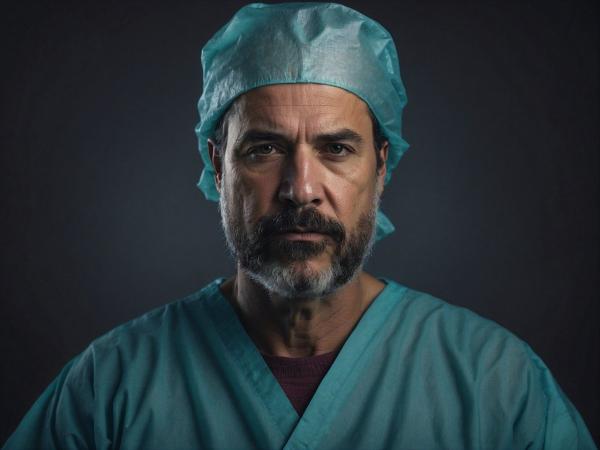Unlike our colleagues in internal medicine, surgeons wield sharp objects so that the temporal relationship between their actions and patient outcomes is hard to miss. As a result, there has been a lot of soul-searching academically about when a surgeon should retire.
While wine and some cheeses improve with age, that cannot be said for humans, especially considering the years just before we retire.
“Knowledge and experience remain for a long time. First to go is strength, then eyesight, then dexterity, and finally cognition. Knowledge, experience, and reputation can compensate for a long time.”
While the exact ordering of events varies, the physical limitations often gradually appear first. Because they are gradual, those limits may go unnoticed by both the surgeon and the team surrounding them for long periods, and everyone has a “bad day.” Knowledge and experience, the wisdom of age, and the halo of our more halcyon years codified as reputation are increasingly misinforming our current abilities. To some extent, there are aids to declining physical ability; you can sit and operate, but you needn’t stand all the time. There are multiple “prosthetics” to improve one’s eyesight. But cognitive decline is a different beast.
Cognitive testing has been in the news a lot lately. Surgeons' scoring on the Microcog, a computerized test of cognition [1], clearly declines with age, however,
“There has not been any showing that a good score on the MicroCog correlates with good performance of surgery or that a low score on the MicroCog correlates with incompetency or lack of skill.”
Because we, like all physicians, are fiduciaries, with both a legal and ethical requirement to act in the best interest of our patients, we have an obligation to step aside when our physical or mental aging limits our ability. But we often ignore those early warnings. A study of neurosurgeons suggests we fail to put the scalpel down because of a resistance to change, a fear of death, and a lack of self-esteem. The habits and rituals that have defined your practice for decades are hard to let go of, especially if you do not see a new way that they might be deployed. (Internists can work part-time or do locums; there are no part-time surgeons). While I have some problems with the phrasing of a “fear of death,” I will readily attest to the fact that it is disconcerting to find myself on the opposite side of the desk in a physician’s office. I struggle with this even today, eight years after leaving clinical medicine.
Lack of self-esteem seems contrary to the highly confident surgical personality stereotype. But for those of us in the trade, you are, at best, only one or two bad outcomes away from losing your self-respect. Moreover, for many surgeons, providing surgical care is a calling, so when one “stops doing surgery, he or she runs a risk he or she will no longer value him or herself.”
There is perhaps no better literary description of the loss of self-esteem than Arthur Miller’s Death of a Salesman. I wanted to share two salient quotes.
“You can’t eat the orange and throw the peel away — a man is not a piece of fruit!”
– Willy Loman
“I don't say he's a great man. Willie Loman never made a lot of money. His name was never in the paper. He's not the finest character that ever lived. But he's a human being, and a terrible thing is happening to him. So attention must be paid. He's not to be allowed to fall in his grave like an old dog. Attention, attention must finally be paid to such a person.”
- Linda Loman, Willy’s wife
Today, on the national and global stage, we watch the act of putting the scalpel down. Unlike Willy, whose name was never in the paper, we are witnessing “a terrible thing,” made more difficult and heart-wrenching by the millions looking on. While the decision facing the President is in part political, onlookers and pundits looking solely through a political lens are a bit like those who hope to protect themselves by whistling past a graveyard. John Donne said it best,
"… never send to know for whom the bell tolls; it tolls for thee."
[1] This computer-administered battery test, developed by Harvard Medical School and Pearson, evaluates nine interrelated cognitive areas: Attention/Mental Control, Memory, Spatial Processing, Reasoning/Calculation, Reaction Time, Information Processing Accuracy, Information Processing Speed, Cognitive Functioning, Cognitive Proficiency. It has a 17% false negative rate and a 4% rate for false positives in identifying truly impaired clinicians.
Source: The Problem of the Aging Surgeon: When Surgeon Age Becomes a Surgical Risk Factor Clinical Orthopedics and Related Research DOI: 0.1007/s11999-008-0587-7




